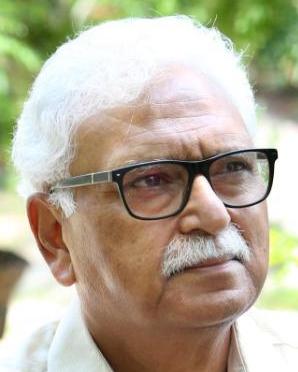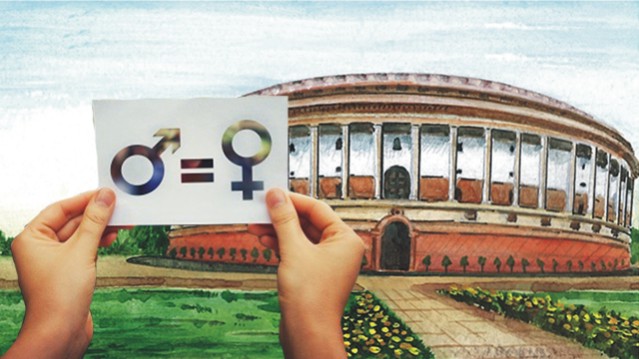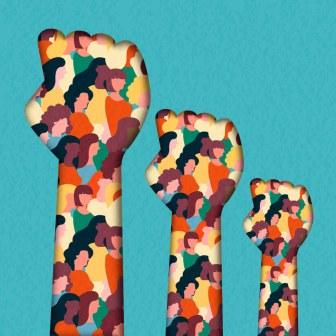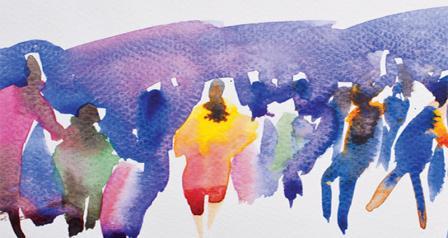

Professor Renu Cheema Vig was recently appointed vice-chancellor of Panjab University and is the first woman to hold the position in the varsity’s 140 year old history. Last month Group Captain Shaliza Dhami became the first female Air Force officer to be given frontline duty to command a mission launching facility.
Another woman office Col Geeta Rana became the first woman officer to be given command role on the frontline when she was entrusted to lead an army unit in Ladakh.
 These are some of the recent instances of women breaking the glass ceiling and excelling in various fields. They have done exceedingly well and have proved to be no less than their male counterparts.
These are some of the recent instances of women breaking the glass ceiling and excelling in various fields. They have done exceedingly well and have proved to be no less than their male counterparts.
Yet, when it comes to their representation in the work force the per cent age remains abysmally low despite the fact that they constitute nearly half of the country’s population.
The latest report by the Centre for Monitoring Economy has pointed that the female labour participation rate remains significantly lower than that of males.
During January-April 2022, male participation in labour force was 66 per cent while for the females it was just 9 per cent. In fact the participation of females has never breached 20 per cent for any age group.
The poor representation of women starts from the electoral system itself. Despite almost every political party regularly proclaiming that it is in favour of at least 33 per cent representation for women in distribution of tickets to contest elections, the resolve is forgotten when it comes to actual distribution of tickets.
Suddenly “winnability” becomes the most important factor despite the fact that the rate of women participating in voting has been going up.
As per the Election Commission of India data, women are just 10.5 per cent of all Members of Parliament. The current Lok Sabha has just 82 female members representing half of our population. The average representation of women in State Assemblies is even less – at 9 per cent – on an average.
 The data shows that the representation of women has actually fallen in the recent past instead of increasing steadily. The Inter-Parliamentary Union (IPU) data shows that the representation of women in Parliament is even worse than Pakistan, Bangladesh and Nepal!
The data shows that the representation of women has actually fallen in the recent past instead of increasing steadily. The Inter-Parliamentary Union (IPU) data shows that the representation of women in Parliament is even worse than Pakistan, Bangladesh and Nepal!
Surely this is a cause of serious concern as we are among the first countries to have a woman prime minister – Indira Gandhi – who was considered a strong prime minister.
Incidentally several counties including the United States have never had a female as the executive head.
Besides Indira Gandhi there have been many successful women political leaders like the first female Uttar Pradesh chief minister Sucheta Kripalani. After that Mayawati, Jayalalithaa, Vasundhra Raje Scindia, Anwara Taimur, Shiela Dixit, Mamta Banerjee and several others have held the post.
 However these have not led to any major improvement in representation of the female population.
However these have not led to any major improvement in representation of the female population.
The data of employment in government jobs, available for 2011, shows that just 11 per cent of employees were women. By 2020 it had reached merely 13 per cent. Among all the 11, 569 officers entering service between 1951 and 2020, only 1527 were women.
The country is yet to see female officers as Cabinet Secretary or as Secretaries of Finance, Home and Defence. However, they appear to be “more suited” for ministries like social welfare, culture and women and child development.
 The representation of women in other fields, including industry, also remains poor. For instance the available data shows just about 22 per cent of the owners of Medium and Small Scale Industries are females.
The representation of women in other fields, including industry, also remains poor. For instance the available data shows just about 22 per cent of the owners of Medium and Small Scale Industries are females.
The continued low representation is not only unfair to the female citizens, it is impacting on our economy. All the developed countries have high women representation and contribution in various fields.
You can’t keep a large segment of the population unproductive and grossly underrepresented if you want to make strides in progress. It is for political leaders to show the way and ensure that India is not deprived of the talent and productively of half of its population. ![]()
___________
Also Read:
TRUTH VS FALSEHOOD: BBC – Who is afraid?
Mughal Gardens – Name Changed, But Why?
Industrialization versus Environmental Degradation
Punjab – How a deadly cocktail of Agri-Water-Energy nexus going to destroy it?
North Pole and the ideological conflict of RSS & Hindutva

Disclaimer : PunjabTodayTV.com and other platforms of the Punjab Today group strive to include views and opinions from across the entire spectrum, but by no means do we agree with everything we publish. Our efforts and editorial choices consistently underscore our authors’ right to the freedom of speech. However, it should be clear to all readers that individual authors are responsible for the information, ideas or opinions in their articles, and very often, these do not reflect the views of PunjabTodayTV.com or other platforms of the group. Punjab Today does not assume any responsibility or liability for the views of authors whose work appears here.
Punjab Today believes in serious, engaging, narrative journalism at a time when mainstream media houses seem to have given up on long-form writing and news television has blurred or altogether erased the lines between news and slapstick entertainment. We at Punjab Today believe that readers such as yourself appreciate cerebral journalism, and would like you to hold us against the best international industry standards. Brickbats are welcome even more than bouquets, though an occasional pat on the back is always encouraging. Good journalism can be a lifeline in these uncertain times worldwide. You can support us in myriad ways. To begin with, by spreading word about us and forwarding this reportage. Stay engaged.
— Team PT


Copyright © Punjab Today TV : All right Reserve 2016 - 2024 |